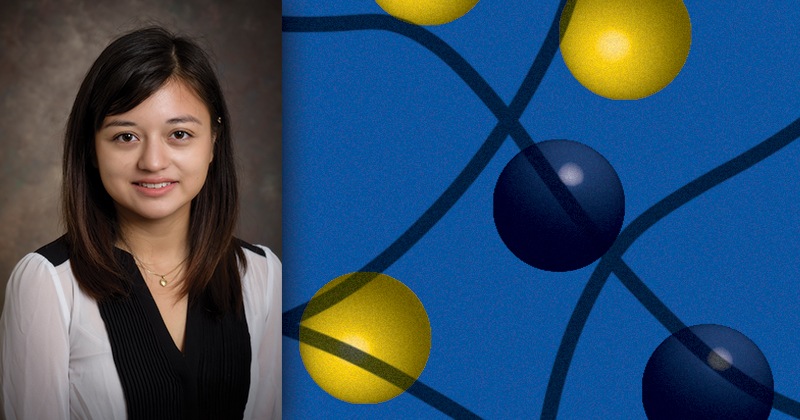Biomedical engineer studies the behavior of breast cancer cells
As a graduate research assistant in the University of Delaware’s doctoral program in biomedical engineering, Cindy Farino Reyes studies how and why some cancer cells become dormant only to be reactivated months to decades later.
Born in Ecuador, Farino Reyes immigrated to the United States with her parents as a young child, and the family put down roots in New Jersey. After high school, Farino Reyes enrolled in Bergen Community College before transferring to Rutgers University, where she majored in biomedical engineering.
In 2017, Farino Reyes was accepted into UD’s College of Engineering, where she studies the behavior of breast cancer cells in the lab of associate professor John Slater. Using what is known as 3D hydrogel, which has a tissue-like consistency that allows scientists to study how tumors might grow in the human body, Farino Reyes induces a dormant-like state in cancer cells to study how they behave under certain conditions and what causes cancer cells to reactivate.
“We know that cancer is a big problem, and 90 percent of cancer-associated deaths are because of cancer metastasis, which is when cancer cells spread from a primary region to a secondary region,” says Farino Reyes. “What researchers have seen is a long period of latency between when doctors treat the cancer and it is no longer detectable, to when it comes back. So my research focuses on that waiting period, that period of dormancy where cancer cells are viable but not proliferating.”
During this dormancy period, Farino Reyes continues, cancer cells are “not clinically detectable,” in some cases not even responding to chemotherapy, “but we know they’re there because they then eventually do come back and form new tumors.”
Farino Reyes’ research into cancer cell dormancy was recently published in the journal ACS Applied Bio Materials, and she hopes that further research on this topic will lead to medical breakthroughs in cancer treatment.
To support Farino Reyes’ research, the Department of Biomedical Engineering nominated her for the Koerner Family Award, which is given to research-oriented engineers to help them complete their doctoral studies while fostering innovation in the field. Farino Reyes was awarded $10,000.
“The University of Delaware provides so many different resources, and they really helped build a supportive foundation via the faculty, students and administration,” Farino Reyes said. “It’s a great program.”

